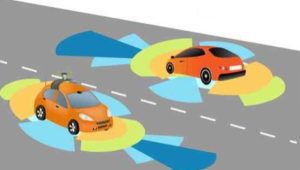
Investors Accelerating Driverless Car Development

Optimus Ride, a Massachusetts Institute of Technology AI spinoff developing fully autonomous vehicles, continues to attract venture funding as it applies machine learning, computer vision and mapping techniques to the problem a safe, driverless cars.
The MIT spinoff announced last week it has raised an additional $18 million in venture funding, raising its total to more than $23 million in two rounds. Nvidia’s investment arm, GPU Ventures, is an early investor in Optimus Ride.
The latest round was led by Greycroft Partners, with participation from Emerson Collective, Fraser McCombs Capital and Joi Ito, director of MIT Media Lab. The company said it would use the cash infusion to expand its fleet of vehicles.
Boston-based Optimus Ride was one of six AI startups to receive funding from Nvidia’s (NASDAQ: NVDA) investment arm earlier this year. The startup along with long list of auto manufacturers are using Nvidia’s AI platforms to develop driverless car technology, including the chip maker’s DGX platform for training deep neural networks and its Drive PX car computer for inference applications.
Optimus Ride claims a combined 30 years of experience in “interdisciplinary university research” focused on autonomous vehicle technology, including robotics, electric vehicles and vehicle fleet management.
So far, the startup has said little of the computer vision and other AI technologies is it using, other than noting that it is leveraging advanced in complex sensor fusion, computer vision, mapping and machine learning.
Optimus Ride has so far received approval from the Massachusetts Department of Transportation to test automated vehicles in the commonwealth. It also has an agreement with the agency along with the City of Boston to test self-driving vehicles on roads and public property in Boston and across Massachusetts.
The MIT spinoff is among a growing list of AI startups working with Nvidia to advance driverless technology. H2O.ai, a machine-learning specialist that unveiled its “Driverless AI” platform this past summer, announced last month it is upgrading the system via integration with Nvidia’s AI development system.
The Mountain View, Calif., company unveiled its Driverless AI platform in July that combines the startup’s automated machine- and deep-learning tools, AutoML and AutoDL, that provide automated training of models running on GPU-accelerated hardware. The AI platform automates many of the tasks associated with building, running, and maintaining a predictive analytics pipeline. Those tasks include data preparation, and identifying the best algorithms to use along with development and deploying models, the startup said.
Meanwhile, automakers are stepping up their machine learning and computer vision efforts. For example, Ford Motor Co. (NYSE: F) last year announced several acquisitions and investments in areas ranging from machine vision to 3-D mapping as it seeks to develop fully autonomous vehicles for a ride-sharing service scheduled to be launched by 2021.
Recent items:
H2O Ups AI Ante Via Nvidia GPU Integration
Ford Accelerates Driverless Car Effort With Machine Learning



























